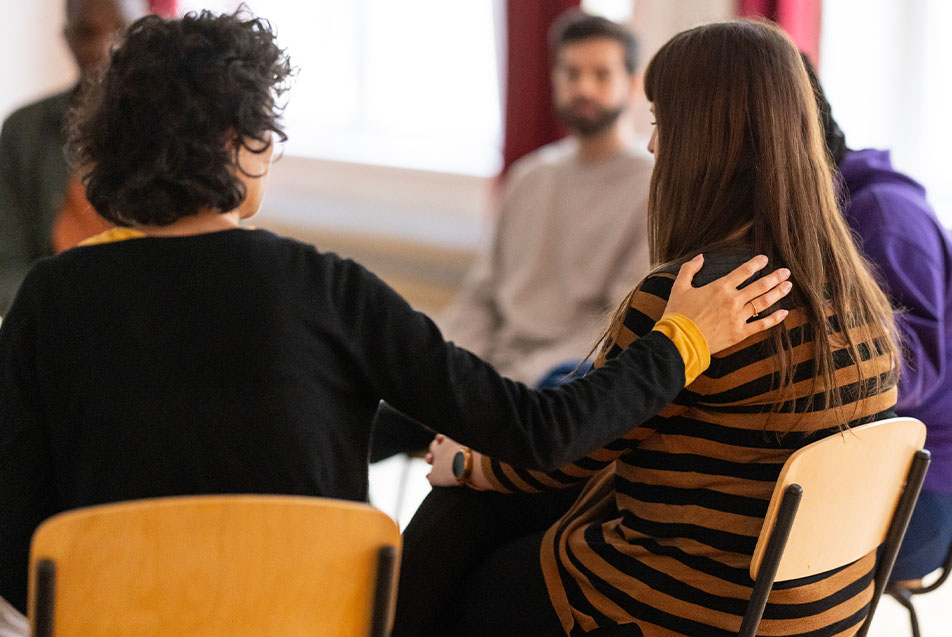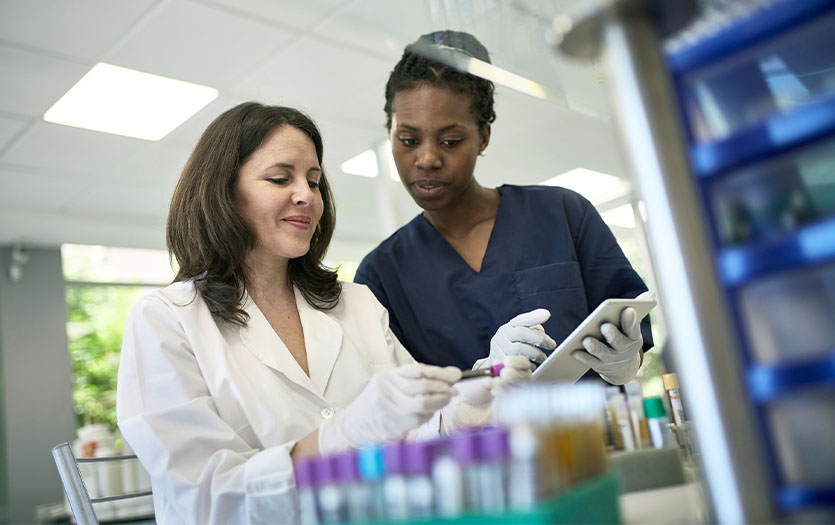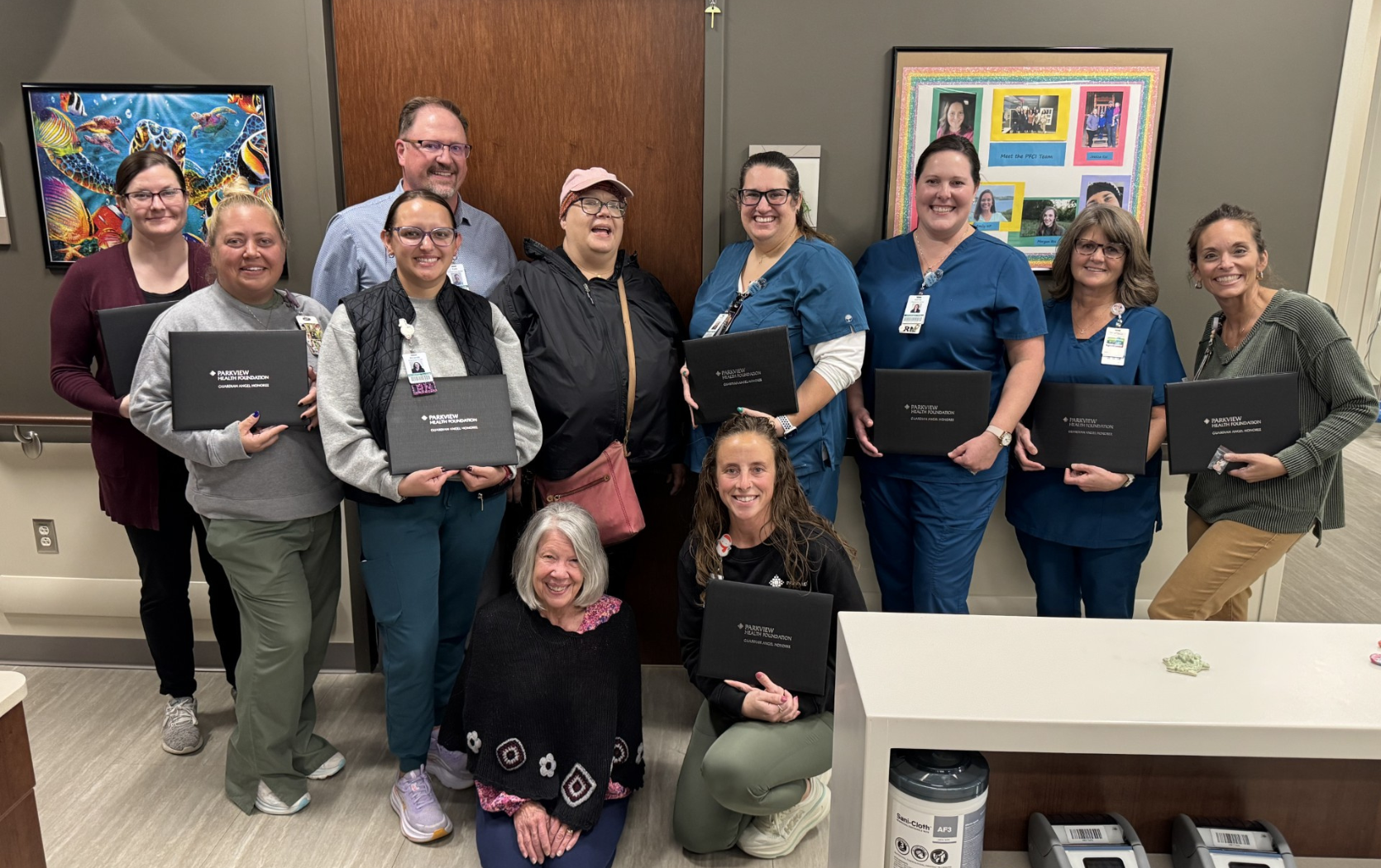
Every 40 seconds, someone in the United States has a stroke. It’s a sobering statistic and experience for both the individual who has the health emergency, and their loved ones. Recognizing the shifts that take place following a stroke event, Parkview offers support groups for those who need a safe space to gather and share the challenges that accompany a neurological condition. We asked Linda Tritch, OTR, Outpatient Therapy, Parkview Noble Hospital, to share her insights on the benefits of these meetings.
What are some of the emotional and physical challenges stroke patients and their loved ones experience?
This is a tough, tough question. Every stroke is different and unique, as are the situations patients and caregivers face. Recovering from a stroke for a patient and caregiver can be similar to going through the stages of grief: denial, anger, bargaining, depression and acceptance.
For the patient, it’s often grieving a loss of control and allowing or accepting help from others, as well as learning to care for themselves in a new and different way and realizing their physical or cognitive limitations. Just managing the new medical components, from doctor appointments to medications can be overwhelming. Fear from the situation can add anxiety, too. This is especially difficulty if there is no family support.
Certainly, some stroke survivors have huge physical limitations, but others may have minimal issues, and sometimes that’s worse. Those patient’s move and look like they have never had a stroke but may have cognitive limitations that only they are aware of and cause problems as they recognize they aren’t the same or are different now.
For the caregiver, assisting in learning the medical concepts that come with the diagnosis, grieving the loss of the loved one they knew before the stroke and accepting their limitations are difficult. The recovery process can be overwhelming. Financial concerns also have a huge impact on the patient and their caregiver, and their ability to cope.
It’s helpful to adopt a mindset of living in the moment and taking it day by day. Educating oneself and asking questions about the recovery process can also be beneficial.
How does the stroke support group benefit those who have experienced a stroke?
Our support groups typically meet once a month and offer emotional support as well as education around community resources for assistance. It’s a space for sharing ideas for how to do things differently or how others are using different equipment. Patients talk about medical resources, education regarding their diagnoses, what to expect and where to turn. They share what has worked for them and problem solve solutions or resources that can help others, which is a major benefit.
There’s also a social component. Our members look forward to seeing each other monthly, exchanging ideas, providing encouragement, and seeing and hearing progress. Some people become friends and end up getting together outside of the group.
How do the support groups help the loved ones of stroke survivors?
Depending on the needs of the group, we can split to meet with just caregivers or just survivors. Support groups assist the caregivers and family of stroke survivors by providing information on what to expect after discharge, including dialogue about ways to respond to behavioral issues or cope with personality changes. They discuss medication and experiences, resources for equipment, medical concerns and specialists.
The group is a source of additional encouragement and emotional support for those facing the changes that take place after their loved one has a medical event. Caregivers are encouraged and lifted up by the reminder that they are not alone and there are resources to help.
What are the keys to successfully recovering from a stroke from an emotional standpoint?
Learning to ask for help is the hardest thing to do, but essential. Recovery also demands a positive attitude and "will try" approach in order to make improvements. Survivors and caregivers both have to learn to be the survivor’s advocate, ask questions and educate themselves.
How can participating in a support group be a differentiator in the recovery process?
Being involved in a support group can help the survivor and caregiver navigate the "new normal." It can provide alternative ways of accomplishing tasks or ways to keep survivors safe.
Participants are able to share from learned experiences, which provides valuable insights on how to move forward and identify alternatives instead of trying to figure things out alone.
For more information on Parkview’s stroke support group, call 260-347-8824.



